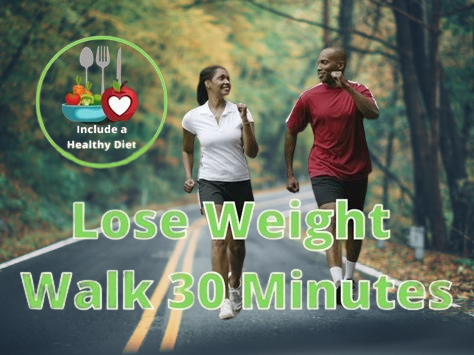Understanding Detox: Definition and Purpose
Detoxification, often referred to as detox, is the process of eliminating toxins from the body. In a general context, detox can encompass various methods and practices aimed at purifying the body from harmful substances, whether they originate from food, environmental factors, or metabolic processes. Specifically, detox is frequently associated with dietary regimens, hydration protocols, and lifestyle adjustments that promote the efficient functioning of the body’s natural detox systems, such as the liver, kidneys, and digestive tract.
People engage in detox practices for numerous reasons, typically centering around health and wellness improvements. Many individuals seek detoxification to enhance their overall vitality, boost energy levels, support weight loss efforts, or address specific health concerns like bloating or poor digestion. Furthermore, detox regimens can play a role in resetting dietary habits, fostering a renewed commitment to healthier choices. By temporarily eliminating processed foods, sugar, alcohol, and caffeine, individuals often report feeling a significant increase in mental clarity, improved mood, and better physical health.
Despite its benefits, the concept of detox is often surrounded by myths and misconceptions. One prevalent misunderstanding is that detox diets are solely a quick fix for weight loss. In truth, while some individuals may experience weight loss during a detox, a healthy detox focuses on encouraging sustainable lifestyle changes rather than merely reducing body weight. Another common fallacy is the belief that detoxing can prevent or treat serious medical conditions, which may lead to unrealistic expectations. Therefore, it is crucial to approach detox practices with a well-informed mindset, prioritizing evidence-based methods and recognizing that the body’s natural detox processes are usually adequate to handle everyday toxic exposure.
The Science Behind Detox: How It Works

Detoxification is a complex physiological process carried out by several key organs within the body, primarily the liver, kidneys, and the lymphatic system. Each plays a vital role in breaking down and eliminating toxins that accumulate from various sources, such as food, pollutants, and metabolic waste. Understanding how these systems function provides insight into the efficacy of detox protocols.
The liver is often referred to as the body’s primary detox organ. It processes harmful substances through biochemical reactions, primarily phase I and phase II detoxification. During phase I, enzymes modify toxins into less harmful forms, whereas phase II undergoes conjugation, in which these modified toxins are bound to other substances to make them water-soluble. This solubility is crucial as it allows for easier excretion through the kidneys or bile.
Following the liver’s processing, the kidneys play an equally important role in filtering out waste products from the bloodstream. They possess nephrons, functional units that filter blood, reabsorb essential nutrients, and eliminate waste in the form of urine. Efficient kidney function is thus critical in the detox process, as impaired kidney function can lead to toxin accumulation in the body.
The lymphatic system, comprised of a network of tissues and organs, helps remove waste products from cells, acting as a secondary circulation system. This system also plays a role in immune function. Proper lymphatic drainage is essential for supporting detoxification, as it aids in transporting waste to the bloodstream for eventual elimination.
Moreover, a healthy gut microbiome significantly contributes to detox. Beneficial bacteria in the intestines aid in breaking down toxins and preventing their reabsorption into the bloodstream. A disrupted gut can impede detoxification processes, leading to increased toxicity in the body.
In summary, the interplay among the liver, kidneys, lymphatic system, and gut microbiome is vital to effective detoxification. A clear understanding of these systems underscores the importance of maintaining overall health to optimize the body’s natural detox capabilities.
Various Methods of Detox: Approaches and Techniques

Detoxification refers to the process of removing toxins from the body, and there are numerous methods available to achieve this goal. Each approach has unique characteristics, effectiveness, and potential benefits, making it essential for individuals to assess which method aligns with their personal health objectives.
One common method of detoxification is dietary cleansing, which typically involves the consumption of whole, unprocessed foods while eliminating sugar, alcohol, and caffeine. Dietary cleanses are believed to facilitate the body’s natural detox processes, enhancing liver function and promoting overall health. However, some critiques argue that such diets may lead to nutritional deficiencies when undertaken for extended periods.
Another popular approach is juice fasting, where individuals consume only fresh fruit and vegetable juices for a specified duration. Proponents of juice fasting claim it provides essential vitamins and minerals while allowing the digestive system to rest. This method may lead to weight loss and improved energy levels, yet it can also result in side effects such as fatigue and dizziness if not managed properly. Additionally, long-term reliance on this method can deprive the body of necessary nutrients.
Herbal supplements represent another detox option, with various herbs purported to support liver function and boost detoxification processes. Commonly used herbs include milk thistle, dandelion root, and burdock root. While many individuals report positive experiences with herbal remedies, scientific evidence supporting their efficacy often varies. Furthermore, herbal supplements can interact with medications, necessitating careful consideration before use.
Comprehensive detox programs typically combine multiple approaches, incorporating dietary changes, juice cleanses, and herbal support. These programs often aim for a more holistic detoxification experience. Each method carries its unique benefits and drawbacks; therefore, individuals are encouraged to research and consider their health status and objectives before embarking on a detox regimen.
The Benefits and Risks of Detox: A Balanced View

Detoxification, commonly referred to as detox, is often pursued for a variety of purported health benefits. Among these benefits are improved energy levels, enhanced digestion, and clearer skin. Many individuals report feeling invigorated and more alert following a carefully managed detox regimen. Improved digestion can result from the elimination of processed foods, refined sugars, and additives, allowing the gastrointestinal system to function more efficiently. Additionally, some detox plans are structured to increase water intake, which can facilitate hydration and support skin clarity, leading to a more radiant appearance.
However, it is crucial to approach detoxification with a balanced perspective. While many endorse the positive outcomes of detox methods, there are inherent risks that must be acknowledged. Extreme detox diets, which often promote severe caloric restriction or the elimination of entire food groups, can lead to nutritional deficiencies. These deficiencies may result in adverse health effects, including fatigue, irritability, and weakened immune function. Furthermore, certain detox products lack scientific validation, which raises concerns regarding their safety and effectiveness. Relying on unverified detox methods might not only be futile but could also pose significant health hazards.
To mitigate these risks, it is prudent to consult with a healthcare professional before embarking on any detox journey. A qualified expert can provide guidance tailored to an individual’s specific health needs and ensure that any detox process supports rather than undermines overall wellness. This professional insight is particularly important to establish a safe framework for detoxification, considering one’s medical history, dietary needs, and lifestyle. Ultimately, the decision to detox should be informed and balanced, weighing both the potential benefits and risks carefully to support long-term health goals.



[…] Detoxification, commonly referred to as detox, has its roots in various health practices and traditional medicine across many cultures. The core concept revolves around the body’s natural ability to eliminate toxins and impurities that accumulate over time due to factors such as modern dietary habits, environmental pollutants, and lifestyle choices. In many ancient medicines, such as Ayurveda and Traditional Chinese Medicine, detoxification was integral to promoting health and preventing illness. […]
[…] and reducing toxicity levels in the body is essential for maintaining overall health and well-being. A holistic approach to detoxification not only aids in flushing out harmful […]
[…] on cardiovascular health. Thus, by reducing sugar consumption, one can tackle these interconnected health issues more […]